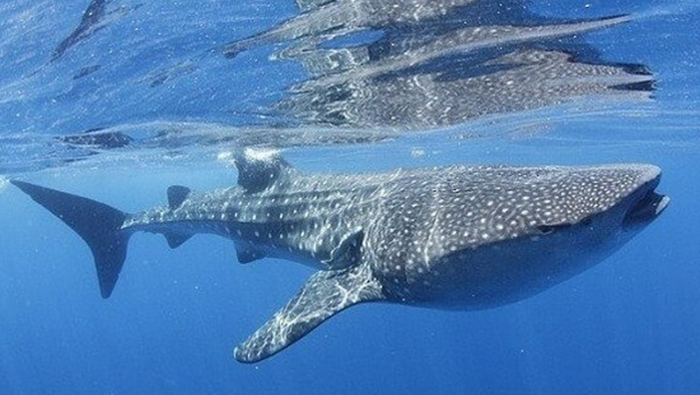
London: A new study out of the United Kingdom (UK) is pointing to collisions with large marine vessels as a possible reason for the years-long decline in whale shark populations.
Marine biologists from the Marine Biological Association and University of Southampton led the study, started in 2019 and published earlier this month in the journal Proceedings of the National Academy of Sciences, which tracked the movements of ships and whale sharks around the world.
The researchers said lethal collisions are vastly underestimated and that their work shows more than 90 per cent of whale shark movements overlapped with global fleets of cargo, tanker, passenger and fishing vessels.
The team satellite-tracked the movements of 348 individual whale sharks, tagged between 2005 and 2019 in the Atlantic, Indian and Pacific Oceans, and mapped out their various "hotspots."
The researchers submitted the data to the Global Shark Movement Project, which is led by the Marine Biological Association.
The International Union for Conservation of Nature's Red List of Threatened Species lists the whale shark as endangered.
Described as "slow-moving ocean giants," the researchers said whale sharks can grow up to 20 metres in length and help regulate plankton levels in the ocean by feeding on microscopic zooplankton.
The researchers said whale shark numbers have been falling in recent years in many locations. However, the reasons why are not entirely clear.
Since whale sharks spend a large amount of time in surface water and gather in coastal regions, experts thought collisions with ships could be causing substantial deaths.
The study suggests that whale shark tag transmissions ended more often in busy shipping lanes than expected, even after ruling out technical failure.
Of the 61 tracked tags that stopped transmitting on busy routes, more than 85 per cent were unrelated to random technical failure, the study said.
The researchers suggest this is likely due to whale sharks being struck and killed, and sinking to the ocean floor.
The research team said there are currently no international regulations to protect whale sharks against ship collisions, and that this "hidden mortality" may be occurring with other marine megafauna.